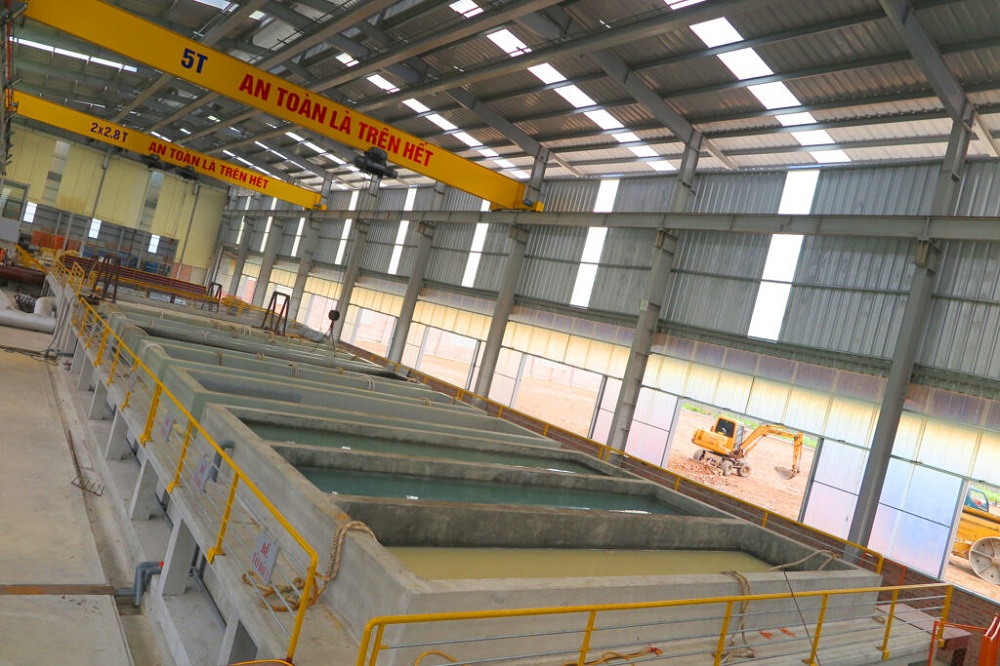
The European standard hot-dip galvanizing process applied by Quan Pham typically includes the following steps. Note that this process adheres to high-quality European standards, ensuring optimal durability and corrosion resistance for the products:
1. Surface Preparation
- Degreasing: The product is immersed in an alkaline solution to remove oil, grease, dirt, and organic contaminants.
- Pickling: The product is soaked in acid (usually hydrochloric acid) to eliminate rust and iron oxides from the surface.
- Fluxing: The product is dipped into a flux solution (typically zinc ammonium chloride) to prevent oxidation before galvanizing and to enhance zinc adhesion.
2. Hot-Dip Galvanizing
- Immersion in Molten Zinc: The product is submerged in a bath of molten zinc at a temperature of approximately 450°C (842°F). The zinc reacts with the steel surface, forming durable zinc-iron alloy layers.
- Immersion Time: The immersion duration depends on the size and thickness of the product, ensuring an even and standardized zinc coating.
3. Cooling
- After galvanizing, the product is cooled in water or air. This process helps the zinc coating harden and adhere firmly to the steel surface.
4. Quality Inspection
- Coating Thickness Check: Equipment is used to measure the thickness of the zinc coating, ensuring it meets standards (typically 50-150 µm depending on the application).
- Adhesion Test: Ensures the zinc coating adheres firmly to the steel surface without peeling.
- Surface Inspection: Ensures the galvanized surface is even and free from defects such as air bubbles, unevenness, or burn marks.
5. Finishing and Packaging
- The product is cleaned again to remove any remaining impurities.
- It is carefully packaged to prevent damage during transportation.
European Standards Applied:
- EN ISO 1461: International standard for hot-dip galvanizing of steel products.
- EN ISO 9001: Comprehensive quality management standard.
This process ensures that Quan Pham’s hot-dip galvanized products meet high-quality standards, offering durability and compliance with the stringent requirements of the European market.
